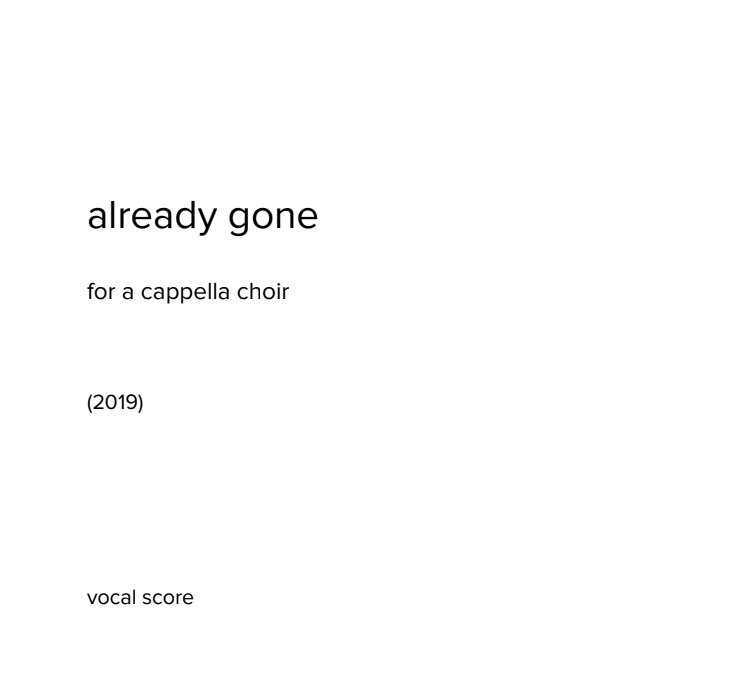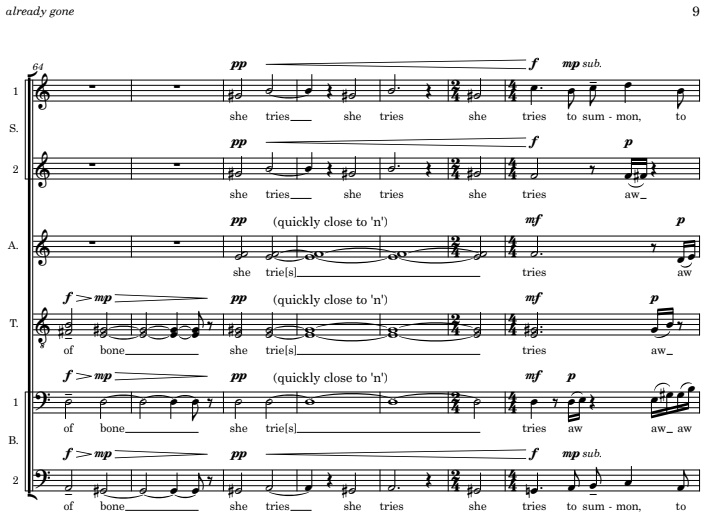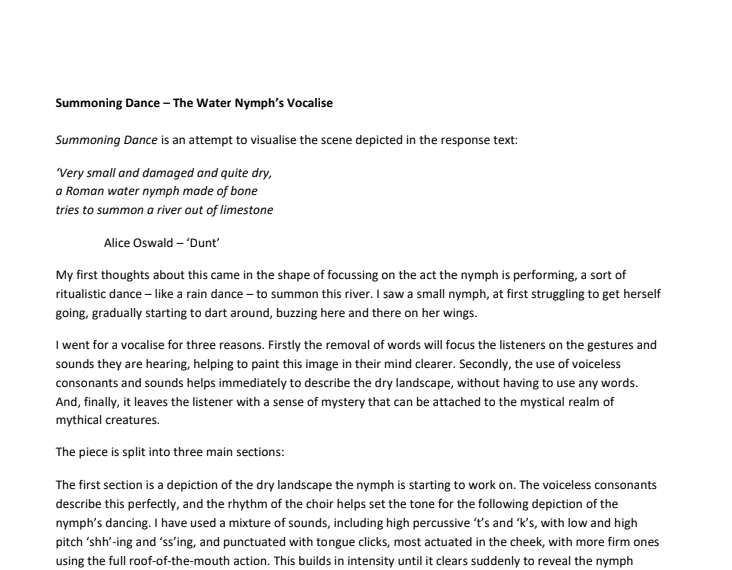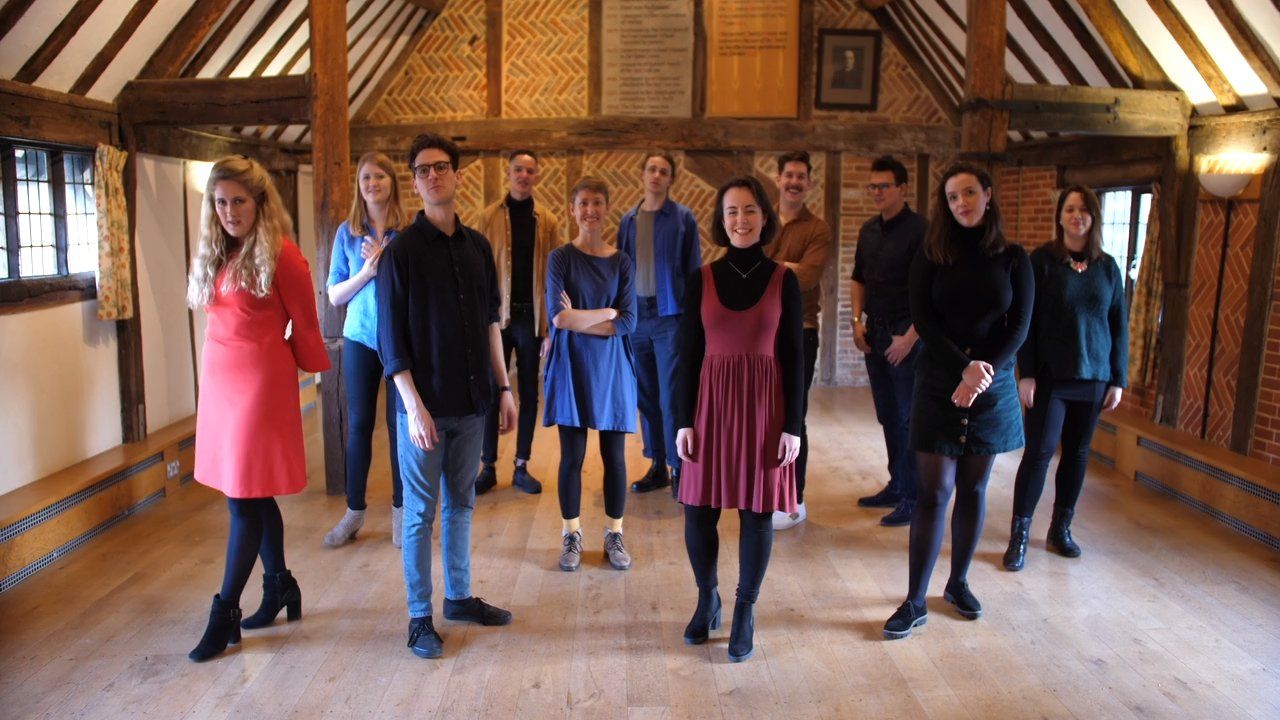R. O nobilissima viriditas,
que radicas in sole
et que in candida
serenitate
luces in rota
quam nulla terrena excellentia
comprehendit:
R. Tu circumdata es
amplexibus
divinorum ministeriorum.
V. Tu rubes ut aurora et ardes
ut solis flamma.
Ego flos campi - Clemens non Papa (1510-1555)
Ego flos campi et lilium convallium.
Sicut lilium inter spinas sic amica mea inter filias
Sicut malus inter ligna silvarum,
sic dilectus meus inter filios
Fons hortorum puteus aquarum viventium quae fluunt impetu de Libano
I vaghi fiori - Giovanni Pierluigi da Palestrina (1525-1594)
I vaghi fiori e l'amorose fronde
e l'erba e l'aria altrui diletto danno.
Porgon riposo gli antri e piacer l'onde,
levanno l'arme e gl'archi ogn'aspro affanno.
L'ombra soave al cor dolcezz 'infonde;
fuggir le gravi angosce l'aure fanno.
Lasso me!
che mia vita non restaura
fior, frond ', erb',
aria, antr ', ond', arm ',
arch', omb ', aura.
Five Flower Songs - Benjamin Britten (1912-1976)
1. To daffodils
Fair daffodils, we weep to see
You haste away so soon;
As yet the early-rising sun
Has not attain'd his noon.
Stay, stay
Until the hasting day
Has run
But to [the] evensong,
And, having pray'd together, we
Will go with you along.
We have short time to stay, as you,
We have as short a spring;
As quick a growth to meet decay,
As you, or anything.
We die,
As your hours [do,] and dry
Away,
Like to the summer's rain,
Or as the pearls of morning's dew,
Ne'er to be found again.
3. Marsh flowers
Here the strong mallow strikes her slimy root,
Here the dull night-shade hangs her deadly fruit;
On hills of dust the henbane's faded green,
And pencill'd flower of sickly scent is seen;
Here on its wiry stem, in rigid bloom,
Grows the salt lavender that lacks perfume.
At the wall's base the fiery nettle springs,
With fruit globose and fierce with poison'd stings;
In every chink delights the fern to grow,
With glossy leaf and tawny bloom below:
The few dull flowers that o'er the place are spread
Partake the nature of their fenny bed.
These, with our sea-weeds, rolling up and down,
Form the contracted Flora of our town.
5.
5. The Ballad of Green Broom
There was an old man lived out in the wood,
And his trade was a-cutting of broom, green broom,
He had but one son without thought without good
Who lay in his bed till 't was noon, bright noon.
The old man awoke one morning and spoke,
He swore he would fire the room, that room,
If his John would not rise and open his eyes,
And away to the wood to cut broom, green broom.
So Johnny arose and slipp'd on his clothes
And away to the wood to cut broom, green broom,
He sharpen'd his knives, and for once he contrives
To cut a great bundle of broom, green broom.
When Johnny pass'd under a Lady's fine house,
Pass'd under a Lady's fine room, fine room,
She call'd to her maid: "Go fetch me," she said,
"Go fetch me the boy that sells broom, green broom!"
When Johnny came into the Lady's fine house,
And stood in the Lady's fine room, fine room,
"Young Johnny" she said, "Will you give up your trade
And marry a lady in bloom, full bloom?"
Johnny gave his consent, and to church they both went,
And he wedded the Lady in bloom, full bloom;
At market and fair, all folks do declare,
There's none like the Boy that sold broom, green broom.







